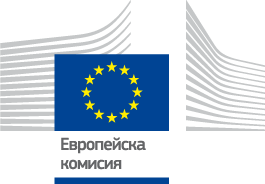

Good Practice Project
Fishermen were identified by the UK’s National Health Service (NHS) as a group with particular health risks as a result of their work. Fishermen’s health can suffer through their unpredictable and antisocial hours, mental and physical stress as well as work-related injuries. And yet, there is a reluctance amongst men, and fishermen in particular, to seek medical advice.
Having identified the need for health interventions in the East Riding fishing community, this project recognised that the health services had to be taken to the fishermen to make them as easy to access as possible, so the idea for this outreach programme was born. The project wanted to encourage and motivate the whole fishing community (not just active fishermen) to improve their overall health and well-being.
The project funded two dedicated Health Trainers (one male and one female) who were based at Bridlington Harbour office and other landing sites along the Holderness coast, operating from huts, warehouses etc. The trainers worked part-time, 2.5 days per week which allowed them to be flexible to fit around the working hours of the fishing community. The health trainers offered free NHS health checks (blood pressure, cholesterol, weight and body mass index, lung function) and made referrals to main health services, where necessary. In addition, a ‘fit2fish’ competition to encourage fishermen to become more physically active and healthy food tasting workshops were organised. As well as the hands-on support, the project produced newsletters and ‘Haynes Manual’ health guides (Haynes manuals are very well known in Anglo-Saxon countries and focus usually on very “manly” types of activities such as motorbikes or car repairs). A variety of methods were used to publicise this initiative to the fishing community including newsletters, a competition and word of mouth.
Although this type of project was not originally identified in the FLAG Local Development Strategy (LDS), there was strong backing from organisations within the local community to support fishermen and their families in this way. The FLAG was able to identify an organisation (the NHS) to take on the management of the programme and employ the health trainers. The project was jointly funded between the Seamen’s Hospital Society (a National charity) and the Holderness Coast FLAG.
The health trainers supported 165 fishermen and family members with 49 health checks being completed, which led to 40 direct General Practitioner (GP) referrals for further investigation. The key aspects of health improvement that fishermen and family members identified as being of importance to improve were healthy eating, weight loss and reduction in smoking with 76% of clients reported to achieve the goals they had set themselves. A part of this success can be attributed to the 34 fishermen and family members who signed up for the FLAG’s ‘fit2fish’ competition.
The project was free to access for all fishermen and their communities; this is an important consideration if looking to transfer the project. It may be possible to ‘piggy back’ this service on to existing services located in convenient buildings at the harbours, which would reduce some of the overhead costs, such as venue rental.
Fishermen became engaged by finding the service at their workplace, allowing them to drop in informally at times that suited them. It takes time to build trust – but once built, news of the service was spread by word of mouth with skippers encouraging their crew to take up the opportunity. It’s important to use different methods to engage the community as one size does not fit all. The personality of the trainers was important – being open, non-judgemental and local with an understanding of the fisheries community was important. The mixture of one male and one female trainer provided a good balance.
| Total project cost | €31 780 |
|---|---|
| FLAG grant |
€14 300
|
| Beneficiary contribution |
€17 480
|
| Timeframe of implementation | From Jul 2011 to Sep 2013 |
|---|---|
| Sea Basins |
|
| Type of area |
|
| Theme |